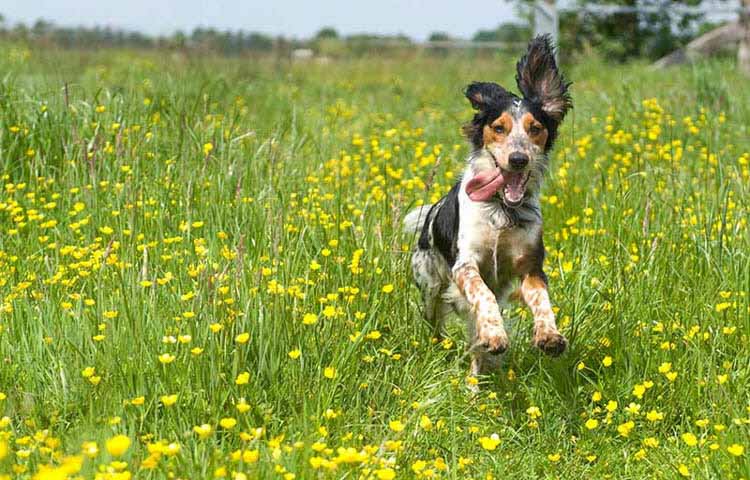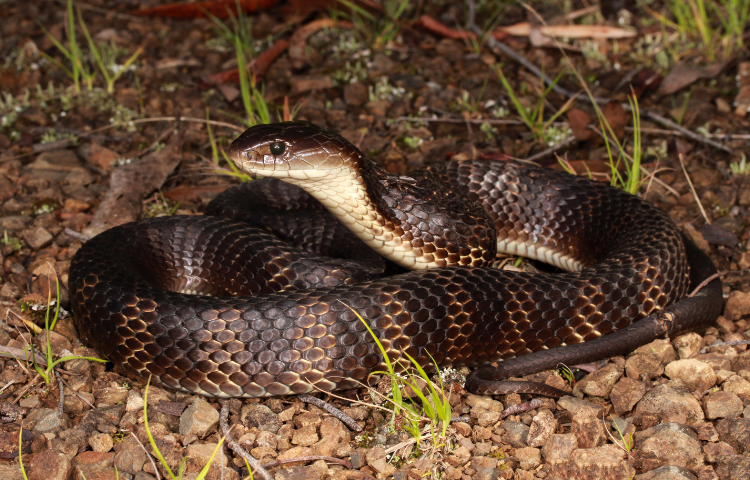Protect your pets: Common toxic plants to avoid
How to identify toxic plants and recognise signs of pet poisoning.
Read more18 September 2024
In the warmer summer months snakes become much more active, and our four legged friends become more curious about their surroundings and their natural hunting instincts come out to play. This can lead to dogs chasing snakes in an attempt to kill them, unknowingly putting their lives at risk from deadly bites. Therefore, it is crucial that we look out for our pets around possible snake areas as well as watching out for the warning signs that our furry friends have been bitten.
In order to protect your pets from possible snake bites, make your backyard less appealing by keeping the grass cut short and your property clear of piles of rubbish, branches or other assorted materials such as corrugated sheets where snakes love to hide. They are also attracted to safe, quiet places where they can hide as well as food and water sources, so don’t leave your dog/cat food out all day to attract a hungry snake.
There is no way to keep your pets away from snakes, as it can be their natural instinct to hunt them down. The best method, if you’re in an area that is common for snakes, is to build a snake proof fence around your entire property. This will stop snakes from entering your pets safe area, however, when going for walks it is important to keep an eye out at all times. If you’re walking close to bushland or water (especially in the hotter months) you should keep your dog on a lead, avoid tall grassy areas and pay attention if your dog starts barking or chasing something.
In the unfortunate event that your pet has been bitten by a snake, it is important to stay calm and not try and kill the snake, as it may put you in harm’s way as well. Your pet’s reaction to a snake bite is determined by the type of snake and area at which the bite occurs. The general rule is the closer the bite is to the heart, the quicker the venom will spread to the rest of the body and therefore, the less time you have to get your pet to the vets. In saying this, a snake’s bite at the start of summer is typically more severe as their glands are fuller, meaning time is of the essence.

The most common snake bites for domestic pets in Australia are from tiger and brown snakes, which in a lot of cases can be fatal.
Some warning signs of a snake bite are:
Many pets may not show obvious signs, or it may look like a minor scratch. However, if you think your pet is showing any of these signs, or you think they’ve been bitten by a snake, calm them down and get to the vets as soon as possible. If your vet is some distance away, apply a firm bandage around the bite area to slow the venom from spreading as the chance of recovery is much greater when treated quickly.
Do not wash the bite wound or apply a tourniquet. The veterinarian will deal with everything and can even identify the type of snake (if you’re not sure) through a simple test and administer anti-venom.

If you see a snake on your property, call a local snake catcher to sort it out for you do not try to catch or kill the snake. Many snakes located within Australia are venomous, extremely deadly, and are not afraid to strike if provoked. Remove your pets and yourself completely from the situation whilst still being able to keep an eye on it to show the snake catcher where it is hiding or the direction it went. If there is a snake in your house, lock it in the room by putting towels at the bottom of the doors so it can’t escape.
Remember to always be prepared for emergencies. If your dog or cat is bitten by a snake, treatments using anti-venom from your vet could be lifesaving. Anti-venom can be costly, ranging from $300 up to $2,000 for each vial depending on the type. Unfortunately sometimes the cost of anti-venom means that not all owners can afford to get treatment their dog or cat needs, but having an emergency plan for your pet, such as pet insurance, could make all the difference.